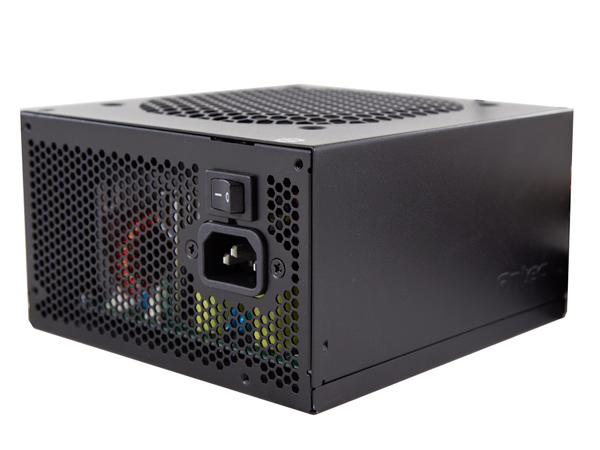Antec VPF Series 650W PSU Review
Antec's VPF650 is a budget PSU made by Delta Electronics to achieve high-performance-per-dollar. In the US, the VPF units are sold under the EarthWatts Green series.
Why you can trust Tom's Hardware
Pros, Cons And Final Verdict
Usually, Delta's implementations come at a stiff price since the company is considered one of the best and most expensive. Fortunately, Antec (currently the only company that works with Delta in the manufacturing of desktop PSUs) manages to make a good deal, leading to the release of its budget-oriented VPF line. To lower the VPF series' price, Antec didn't offer any modular cables and even abandoned cable sleeving. However, no compromises were made inside the PSU, where high-quality Japanese capacitors are used for increased reliability. It is very uncommon to find such good capacitors, including polymer ones, in an inexpensive unit. On top of that, the platform features DC-DC converters for generating the minor rails, allowing it to easily meet Intel's tough requirements for Haswell compatibility.
The VPF650 achieved good performance, but we would have liked to see higher efficiency readings throughout its entire operating range. However, in sections that matter the most for the health of the components that it will power, including ripple suppression and performance in turn-on transients, the PSU fared well—not only compared to the budget competition, but also against much more expensive products.
As far as the not-so-good points of this design are concerned, our most worrying findings were the inrush current readings. Delta should look into this problem and probably use a proper NTC thermistor to suppress large inrush currents that can damage switches, relays and other components. In addition, no metal oxide varistor was used in the EMI/transient filtering stage. This inexpensive component can save not only the PSU, but the whole system in the case of voltage spikes. This is why we always recommend using the VPF650 (as well as any PSU that doesn't feature an MOV or a TVS diode) along with a surge protector, in case you cannot afford an uninterruptible power supply.
In the U.S., you won't find the VPF series under this name. Instead, the PSUs are available under the updated EarthWatts Green line (Antec replaced its old EarthWatts Green line with the new VPF units). This can be confusing for some users, and in our opinion, Antec should have kept the same naming scheme in all regions. In addition, the VPF units sold in Europe cost much less than the EarthWatts Green units in the U.S. The opposite is usually true for most hardware components. In our opinion, Antec should lower the prices of the new EarthWatts Green family in order to make them more appealing to mainstream buyers and facilitate an even higher performance-per-dollar ratio.
To wrap up, the Antec VPF650 PSU—along with its U.S. counterpart, the EA-650—offers solid reliability and good performance levels at a low price. However, there is room for improvement. Delta, the VPF series' OEM, can provide a slight efficiency boost, adding an MOV and proper inrush current protection to the platform, in turn creating an exceptional product.
MORE: How We Test Power SuppliesMORE:
Who's Who In Power Supplies, 2014: Brands Vs. ManufacturersMORE:
Power Supplies in the Forums
Aris Mpitziopoulos is a Contributing Editor for Tom's Hardware, covering Power Supplies.
Get Tom's Hardware's best news and in-depth reviews, straight to your inbox.
Follow us on Twitter @tomshardware, on Facebook and on Google+.
Current page: Pros, Cons And Final Verdict
Prev Page Performance, Performance Per Dollar And Noise Ratings
Aris Mpitziopoulos is a contributing editor at Tom's Hardware, covering PSUs.
-
CTurbo I hope Delta is not going to get out of the consumer psu business completely. They've been one of my go-to oems for years. Top notch reliability.Reply -
Onus Antec has been one of my go-to standards for years as well. Though it has been surpassed in efficiency, I may need to put my SG-650 in my will because of its anticipated durability.Reply -
2Be_or_Not2Be When the author says "... Delta no longer has an interest in this market..." - what market is he talking about? I seem to recall that quite a few of my Dell servers had Delta OEM PSUs, and I think a number of Dell desktops had custom Delta PSUs as well. So is it only the consumer market that they don't want to supply anymore?Reply -
iam2thecrowe Reply16537381 said:When the author says "... Delta no longer has an interest in this market..." - what market is he talking about? I seem to recall that quite a few of my Dell servers had Delta OEM PSUs, and I think a number of Dell desktops had custom Delta PSUs as well. So is it only the consumer market that they don't want to supply anymore?
probably. There is now too much competition in the consumer psu market for it to be really profitable for some companies. It would make sense if a company only wanted to do anything other than generic PC ATX psu's, because they can charge a lot more for it. -
Aris_Mp Yeap Delta is away from consumer market. They mostly make OEM PSUs now. As far as I know only Antec has a contract with them for desktop PSUs.Reply
